All Stories
-
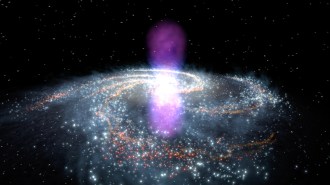 Astronomy
AstronomyCosmic antimatter hints at origins of huge bubbles in our galaxy’s center
An excess of positrons in Earth’s vicinity supports the idea that the Fermi bubbles were burped by the Milky Way’s supermassive black hole long ago.
-
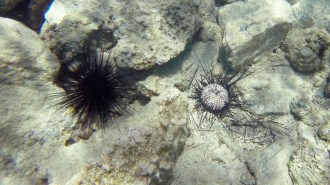 Animals
AnimalsUrchins are dying off across the Caribbean. Scientists now know why
A type of single-celled microorganism associated with coral diseases is behind a sea urchin die-off in the Caribbean.
By Anna Gibbs -
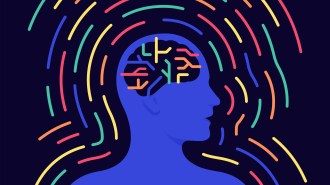 Neuroscience
NeuroscienceThe classic map of how the human brain manages movement gets an update
Functional MRI scans provide a new version of the motor homunculus, the mapping of how the primary motor cortex controls parts of the body.
-
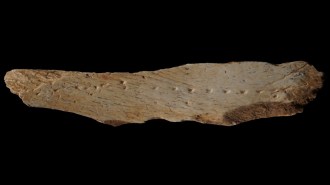 Archaeology
ArchaeologyA prehistoric method for tailoring clothes may be written in bone
A punctured bone fragment was probably a leatherwork punch board. Perforated leather sewn together may have been seams in clothing.
-
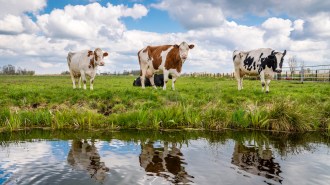 Climate
ClimateMethane may not warm the Earth quite as much as previously thought
Methane absorbs both longwave and shortwave radiation, with competing effects on climate, a study finds. The gas remains a potent warmer of the planet.
By Douglas Fox -
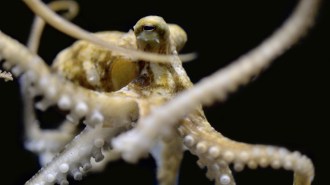 Animals
AnimalsOctopus, squid and cuttlefish arms evolved to ‘taste’ different compounds
Octopus suckers can taste a variety of greasy, sticky molecules, while squid and cuttlefish suckers detect bitter compounds.
-
 Planetary Science
Planetary ScienceSaturn’s icy rings are probably heating its atmosphere, giving it an ultraviolet glow
Detecting similar emission from a distant world could help astronomers find other planets that boast bright and beautiful rings.
By Ken Croswell -
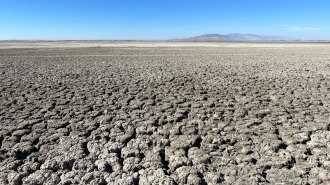 Earth
EarthThe Great Salt Lake is shrinking. What can we do to stop it?
A dropping lake level affects agriculture, public health and the environment — but water conservation can halt the decline.
-

-
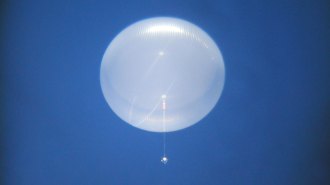 Tech
Tech50 years ago, a balloon circumnavigated the world for science
A 1973 high-altitude flight kicked off an era of useful stratospheric balloon science. Some scientists worry that heightened concerns over alleged spy balloons might hamper that.
-

The many challenges of exploring hidden realms
Editor in chief Nancy Shute discusses the challenges of studying the invisible or inaccessible, from the seafloor to hidden caverns buried underneath solid ice.
By Nancy Shute -
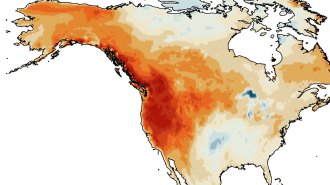 Climate
ClimateThe summer of 2021 was the Pacific Northwest’s hottest in a millennium
Tree ring data from the Pacific Northwest reveal that the region’s average summer temperature in 2021 was the highest since at least the year 950.
By Sid Perkins